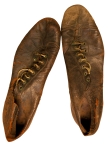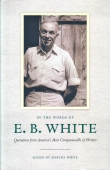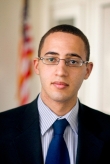ESSENTIALS
CORNELL AT 150Meinigs to co-chair Cornell sesquicentennial
Cornell Board of Trustees Chairman Peter Meinig '61 and his wife, Nancy '62, will lead the university's celebration of its 150th anniversary in 2015, Cornell President David Skorton announced in October.
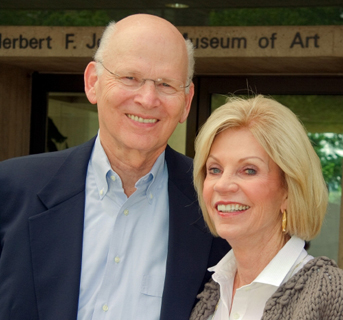
"Nancy and Pete bring a deep knowledge of Cornell gained through their lifetime of service to the university. We are honored that they will share their perspectives at this historic moment," Skorton said.
As co-chairs, the Meinigs will work with Vice President for University Relations Glenn Altschuler, whom Skorton has appointed to chair a Sesquicentennial Committee that will plan major events leading up to 2015.
"We are thrilled to help celebrate the history, achievements and people of Cornell. Looking back at the university's heritage makes me proud to help pave the way for the next 150 years," said Nancy Meinig.
"This is an important milestone in the life of our alma mater, and we look forward to commemorating it with the exhilaration that it deserves," added Peter Meinig, who has chaired the board since 2002.
Altschuler's committee is planning a New York City gala in fall 2014 and a celebration in Ithaca April 24-27, 2015. On April 27, 1865, Gov. Reuben E. Fenton signed the bill that constitutes the charter of Cornell University.
Itsy-bitsy, teenie-weenie
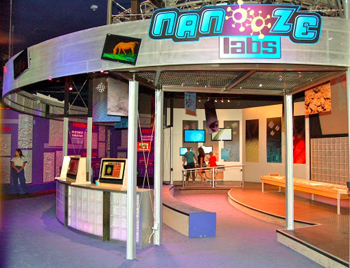
To help visitors understand the vast world of the wee, the new Nanooze Lab at Disneyland, in California, allows them to "touch a molecule" and zoom into the nanometer-scale world of atoms and molecules.
Using microscopes, they can see everyday objects magnified more than 100 times and share them on a large video display or explore butterfly wings and other objects from nature. Sponsored by Cornell and the National Science Foundation, the Nanooze Lab opened in September for one year. "Everything starts off with some common object, and we give guests a chance to explore and play, going down to the nanoscale," said Carl Batt, the Liberty Hyde Bailey Professor of Food Science and founder of Nanooze (www.nanooze.org).
A similar long-term exhibit called Take a Nanooze Break opened in 2010 at the Innoventions pavilion at Walt Disney World's Epcot theme park in Florida.
Play ball
A piece of Cornell's baseball history recently returned home, thanks to the daughter of a first baseman who captained the varsity team nearly a century ago.
The uniform that once belonged to Leslie Clute, Class of 1913, now resides in the library's Division of Rare and Manuscript Collections. Martha Clute, Leslie's daughter, donated a complete outfit: scratchy wool shirt and pants, cleats, mitt, belt and cap.
Clute captained the varsity team during his junior and senior years, played on the team as a sophomore and captained the freshman baseball team. Yearbooks reveal that he was nicknamed "Spider" and describe him as an "able leader" and a "true Cornellian."
Following his senior year, Clute was offered a contract by the New York Yankees but turned it down. After graduation, he coached baseball at Cornell for two years. He went on to open a Ford dealership, the Clute Motor Co., in Elmira, N.Y., in 1916. He died in 1978, and he holds a place in the Cornell Athletic Hall of Fame.
New books on E.B. White, the sublime and NY Times
"In the Words of E.B. White: Quotations From America's Most Companionable of Writers" (Cornell University Press) offers quotations by the Class of 1921 Cornellian, author of "Charlotte's Web," co-author of "The Elements of Style" and essayist for The New Yorker for almost half a century.
The quotations showcase White's wit, style and humanity on topics from automobiles and babies to weather, work and worry. Examples: "The time not to become a father is 18 years before a world war" and "The English language is always sticking a foot out to trip a man."
"Beyond the Finite: The Sublime in Art and Science"(Oxford University Press), co-edited by Roald Hoffmann, Nobel laureate and professor emeritus of chemistry, examines how the sublime has created a necessary link between aesthetic and moral judgment.
Through contributions from nine scholars, the book looks at how science, like art, is continually faced with describing that which is new, extreme and difficult to represent. The authors explore images taken by the Hubble Telescope, quantum romanticism, neuroscience, physics, film, painting and music.
"Endtimes? Crises and Turmoil at The New York Times, 1999-2009" (SUNY Press) by Daniel Schwarz, the Frederic J. Whiton Professor of English Literature and a Stephen H. Weiss Presidential Fellow, studies 10 difficult years in the life of America's iconic newspaper.
Schwarz describes a decade-long transformation of the newspaper as it confronted scandals while also grappling with the rise of the Internet and its impact on news, newsgathering, circulation and advertising. He draws on more than 40 interviews with past and present Times editors, senior figures on the business and financial side and publisher Arthur Sulzberger Jr.
Got Honeycomb?
In October, Cornell unveiled a novel new Web tool called the Honeycomb. Each Honeycomb "cell" covers a distinct topic – for instance, each college has its own cell, and there are also cells on many cross-college topics like international programs and undergraduate student life.
What makes the Honeycomb cells especially handy is how they are populated with fresh data weekly, even daily, via multiple source feeds. The Honeycomb tool is open to public view but was designed to enable university administrators, fundraisers and other spokespeople to share up-to-the-minute news and policy information with interested parties like donors and volunteers.
Take the Honeycomb for a test drive at now.cornell.edu.
Svante Myrick '09 elected Ithaca's youngest mayor
Svante Myrick '09 was elected Ithaca's next mayor on Nov. 8, winning a four-way race with 54 percent of the vote.
At 24, he will be the city's youngest mayor ever; he also will be its first African-American mayor. Myrick, who is an alderman for Ithaca's Fourth Ward and won the Democratic primary in September, was the first African-American mayoral candidate to win a major party's nomination in the city.
"Cornell University congratulates Mayor-elect Svante Myrick and wishes him a successful term of accomplishment and effective service to the people of Ithaca," said President David Skorton. "Our success at Cornell is intimately intertwined with that of the city of Ithaca. Recruitment and retention of our talented students, staff and faculty depends on the vibrant cultural and civic environment of Ithaca. I look forward to working directly with Mayor-elect Myrick toward a shared bright future."
The native of Earlville, N.Y., was a communication major in the College of Agriculture and Life Sciences. During his four-year term on Ithaca's Common Council, he chaired the committee that created the city's Youth Council and served as chair of the Collegetown Vision Implementation Committee.
Since graduating, Myrick worked as an apprenticeship coordinator with The Learning Web in Ithaca and as assistant director of student and young alumni programs for Cornell's Office of Alumni Affairs before resigning that position to run for mayor.
